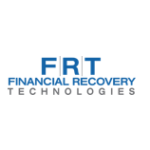International Securities Class Action Overview
International Securities Class Action Overview
While the majority of the world’s securities class action settlements occur in the United States, the international scope of class actions is continuing to expand. Many international countries routinely experience securities class actions, while other countries are new to the concept. The bulk of international class actions occur in Canada and Europe, with Asian countries beginning to implement systems similar to what exists in North America and Europe. As another example, Mexico will begin allowing class actions for the first time in early 2012.
Every country and jurisdiction has its own set of rules governing class actions that are constantly evolving. Even the United States has recently changed its own policies regarding International Securities Class Actions. In the case Morrison V. National Australia Bank, the court ruled that securities traded on foreign exchanges are no longer within U.S. jurisdiction. As a result, damaged investors are increasingly forced to seek foreign jurisdictions as a venue for their complaints. In order to recover damages, investors will need comprehensive coverage of foreign jurisdictions and each jurisdiction’s legal mechanisms for handling group actions.
Many of these countries do not allow class actions as defined by U.S. law, but have other similar vehicles that investors can employ. A common vehicle is referred to as “joinder of claims”, in which each claimant must take legal action against the defendant individually. Then, similar cases are subsequently consolidated by the courts. Some countries, like Australia, allow classes to be organized and represented by third party investor services groups, which front the retainer fee and then take a contingency on the settlement.
Internationally, courts are shifting to provide investors with legitimate recourse in the event of securities fraud. In countries where class actions on behalf of an unknown number of claimants are allowed, oftentimes claimants must opt-in to the class to receive their settlement. (In the U.S., claimants must opt-out if they do not agree with the settlement.) In other opt-out jurisdictions, like Canada, certain cases can be restricted to residents of a particular province, whereas other cases are open to all investors, both Canadian and international.
The distinction should be made between cases involving shares traded on foreign exchanges that are tried in foreign jurisdictions (described above) and foreign securities that are traded on U.S. exchanges in the form of American Depository Receipts (ADRs). ADRs are traded on U.S. exchanges and litigated in U.S. courts; therefore, they are treated as domestic cases. This type of case represents a growing portion of overall settlements. This is largely a result of cases being brought against Chinese companies that fall into U.S. court jurisdiction because their ADRs are listed on U.S. exchanges. The list of countries where companies have securities represented by ADRs on U.S. exchanges is much more extensive than the one listed above.
Financial Recovery Technologies (FRT) maintains a proprietary database of pending, current, and past securities class action lawsuits and settlements, both domestically and internationally. FRT monitors all class action activity by accessing internal and third-party data sources and matches those litigations with institutional investors’ historical transaction data. If your firm held positions of an international organization, FRT has the ability to identify and file for each U.S. and international securities class action lawsuit in which your firm is eligible to recover settlement dollars.
For a more in depth look, read Designing a New Playbook for the New Paradigm: Global Securities Litigation and Regulation, as posted on Kevin LaCroix’s The D&O Diary.
Contact FRT today to learn more about how we can be of service to your organization.






